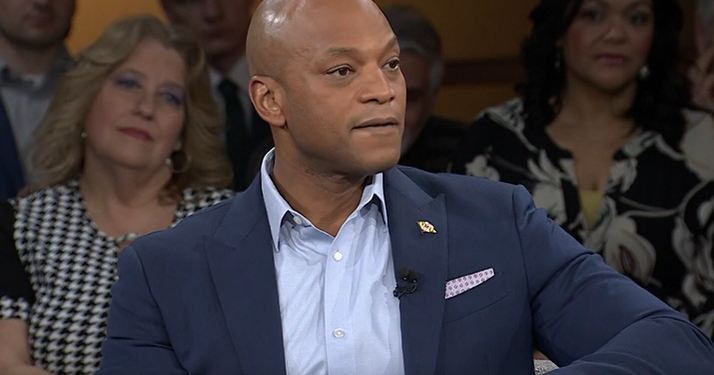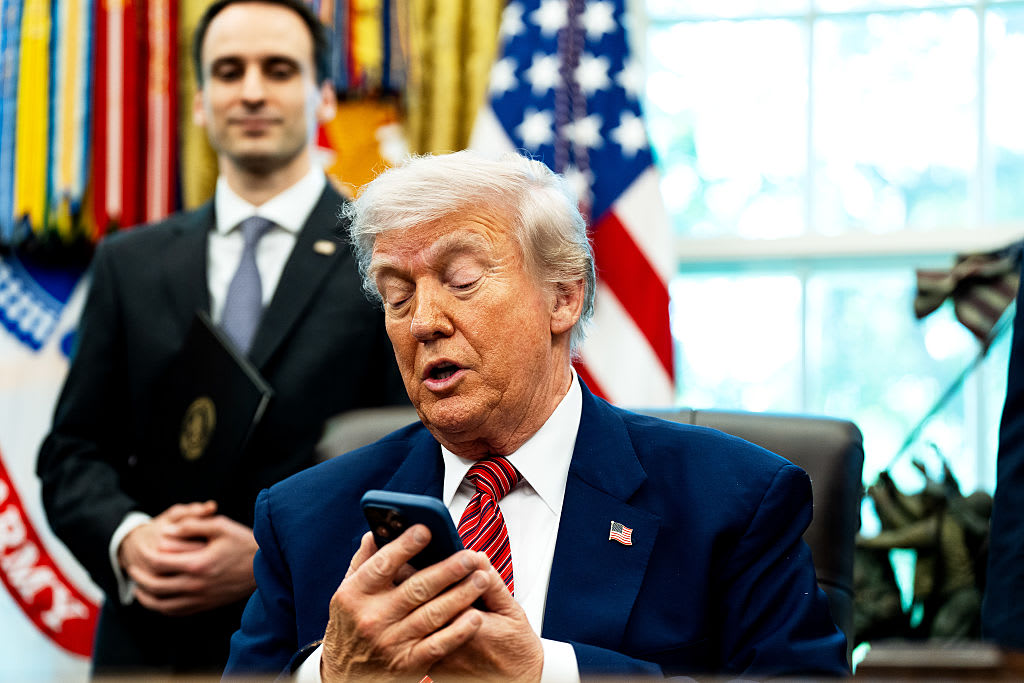Transcript: Scott Gottlieb discusses coronavirus on "Face the Nation," May 2, 2021
The following is a transcript of an interview with former FDA Commissioner Scott Gottlieb that aired May 2, 2021, on "Face the Nation."
JOHN DICKERSON: We go now to former FDA commissioner Dr. Scott Gottlieb. He sits on the board of Pfizer and he joins us from Westport, Connecticut. Good morning, Dr. Gottlieb.
DOCTOR SCOTT GOTTLIEB: Good morning.
JOHN DICKERSON: Before we get to the international picture, I want to get your weekly update on where things stand right now in the United States.
DR. GOTTLIEB: Look the- the situation in the US continues to improve, and I think in the coming weeks we're going to see an acceleration, the- the decline in cases. And one of the big reasons is vaccination. We vaccinate 145 million Americans who've had at least one dose. About 100 million Americans have been fully vaccinated. At this point. This has been a monumental achievement, rolling out this vaccine, getting that many Americans vaccinated. And it's going to continue. We'll continue to chip away at it. The rate of vaccination is going to slow in the coming weeks, but we'll continue to pick up more people as we get into the summer. And if you want to get a harbinger of what it's going to look like, look at San Francisco right now. About 71% of people in San Francisco have had at least one dose of vaccine. Forty seven percent have been fully vaccinated there, recording about 20 cases a day. They have about 20 people who have been hospitalized. So they've dramatically reduced COVID in that city. And it's largely a result of vaccination. I think that right now the gains that we're seeing across the country are locked in. We're entering warm months when this is going to create a backstop against continued spread of the coronavirus. And so we're locking in these gains.
JOHN DICKERSON: You mentioned San Francisco. Let me ask you about New York City. Mayor Bill de Blasio has said New York City will fully reopen on July 1st, even though New York State has the sixth highest count of new cases over the last seven days. What's your assessment of that decision by the New York mayor?
DR. GOTTLIEB: Look, I think as we look out into the summer, we're going to be able to resume normal activity or something resembling normal activity is still going to be a layer of protection on top of what we do, I think people are still going to be cautious. But this is going to be a relatively quiescent summer when it comes to coronavirus spread. New York's doing a lot of testing. New York's leading the country really in testing. So they're turning over a lot of their cases and we're not even capturing all the negative tests. There's a lot of testing going on at home now with at-home tests that aren't necessarily getting reported unless they're positive cases. So I think the positivity rate around the country is even lower than what we're recording. But we're seeing cases come down with seeing hospitalizations come down, which is really the hardest measure of the overall impact of COVID. Hospitalizations are a pretty good indicator of where the direction is heading and they're coming down as well. So I think these gains are pretty sustainable at this point.
JOHN DICKERSON: Let me ask you about India. There is a travel ban for travel from India. Do you think that's a good idea?
DR. GOTTLIEB: Well, I'm not sure what we're hoping to accomplish if the goal is to try to prevent introduction of virus into the United States. There's plenty of virus here already if the goal is to try to prevent introduction of that new variant, 6.1.7. that's circulating in India, I assure you it's here already. So we're not going to prevent its introduction. These travel restrictions could serve a purpose, but we need to be clearly- clear about what that purpose is right now. We still have restrictions in place against travel from China and the UK. That doesn't make a lot of sense. So I'm not really sure what the overall strategy is around these continued travel restrictions that we have in place.
JOHN DICKERSON: When people see these- an enormous number of cases and the virus blooming in different parts of the world, how should they process that with respect to variants, in other words, more disease. Does that create the conditions for more variants that could then come back to the United States and cause US issues here?
DR. GOTTLIEB: Look, that's absolutely the case, the more that this virus continues to circulate, the more it's going to continue to mutate. But the reality is that these variants aren't just cropping up in one market and in migrating around the world. That cropping up simultaneously in every market. You're getting what we call convergent evolution with the same mutations that are arising in other parts of the world are also arising here spontaneously. There's probably a finite number of ways that this virus is going to try to mutate to evade our immunity. And it's testing us everywhere in the world. So the same mutations that are arising in other parts of the world are arising here as well. They just haven't gotten a foothold here, in part because we've been vaccinating our public.
JOHN DICKERSON: A lot of people are thinking about what they're going to do with their kids this summer. What is your assessment? What's going to happen, do you think, in terms of being able to vaccinate those under age 16, say, in the 12 to 16 age range?
DR. GOTTLIEB: Look, I'm hopeful that the FDA is going to authorize the Pfizer vaccine, the company I'm on the board of as applied for permission to start giving its vaccine to 12 to 15 year olds. I'm hopeful the FDA is going to authorize that in a very short time period. And I think when- once that gets authorized, I think you'll pick up probably five million kids will get immediately vaccinated. There's about 17 million children between the age of 12 and 15. I think we'll pick up about 5 million immediately. I think probably another 5 million, 5 to 7 million would get vaccinated over the course of the summer before the school year. So that'll be incremental. Americans getting vaccinated against COVID and hopefully providing protection in an age group that has been susceptible to the infection. Older kids are more susceptible, certainly than younger kids.
JOHN DICKERSON: Will vaccinating kids, is there- is there will that go through the regular system we've had or will parents be going through pediatricians? Is there a different way when you're talking about those younger ages to get the vaccine passed?
DR. GOTTLIEB: Yeah, it's a great question, there's a lot of effort underway right now to try to break the vaccine down into units that can be distributed to doctors' offices to allow pediatricians to provide those vaccinations. And I think that's ultimately the way we're going to get more kids vaccinated. I think initially you're going to see vaccination sites start to offer vaccines to children. Pharmacies will as well. But really, the key to getting kids vaccinated is doing it through pediatricians.
JOHN DICKERSON: All right. Dr. Scott Gottlieb, thanks so much, as always. See you next week.



